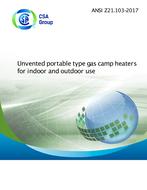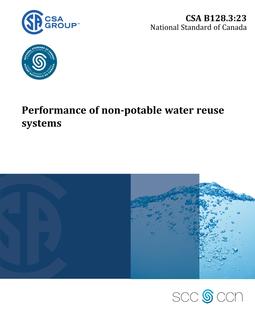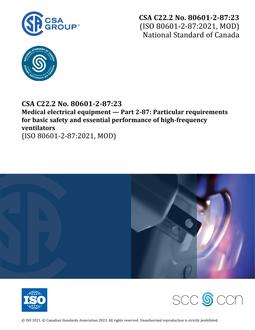
CSA ANSI Z21.103-2017
Preface
This is the first edition of ANSI Z21.103, Unvented portable type gas camp heaters for indoor and outdoor use.
Scope
1.1 This Standard applies to newly produced gas-fired unvented portable type gas camp heaters including the catalytic type, hereinafter referred to as either “heaters” or “portable heaters” having an input up to and including 18 000 Btuh (5.27 kW) using one or more fuel sources such as propane, buatne, or identified propane and butane blended gases. 1.2 Portable heaters are intended for the following uses: a) indoor heating in small recreational enclosures, such as fishing huts, tents, and hunting blinds when such enclosures have adequate means for combustion air and ventilation and when:
- i) used with disposable cylinder(s) of nominal water capacity of 2.7 lb (1.1 kg) [nominal 1 lb (0.45 kg)] LP-gas or less; or ii) connected to a remote self-contained outdoor LP-gas supply system having a maximum size of 20 lb (9.1 kg) of fuel, that provides a regulated outlet pressure not exceeding 11 inches water column (2.74 kPa);
b) emergency indoor home heating, when the space to be heated has adequate means for combustion air and ventilation and when used with disposable cylinder(s) of nominal water capacity of 2.7 lb (1.1 kg) [nominal 1 lb (0.45 kg)] LP-gas or less and such emergency indoor heaters identified for use in;
- i) bedrooms when the heaters have an input setting of 10,000 Btu/hr or less (2 931 W); and ii) bathrooms when the heaters have an input setting of 5,000 Btu/hr or less (1 465 W)
c) outdoor heating, when provided with a self-contained LP-gas propane or butane supply system having a maximum size of 20 lb (9.1 kg) of fuel, that provides a regulated outlet pressure not exceeding 11 inches water column (2.74 kPa). The construction of a heater for use with the above-mentioned gases is covered under Clause 4. The performance of a heater for use with the above-mentioned gases is covered under Clause 5. 1.3 This Standard applies to heaters having a regulated outlet pressure not exceeding 5 psi. 1.4 Heaters and components employing materials or having forms of construction differing from those detailed in these provisions may be examined and tested according to the intent of the provisions, and if found to be satisfactorily equivalent, may be given recognition. 1.5 This Standard applies to heaters constructed entirely of new, unused parts. 1.6 All references to “psi” throughout this Standard are to be considered gauge pressures unless otherwise specified. 1.7 All accessories supplied with the appliance are to be evaluated with the appliance. 1.8 If a value for measurement as given in this Standard is followed by an equivalent value in other units, the first stated value is to be regarded as the specification. 1.9 Clause 2 contains a list of standards specifically referenced in this Standard, and sources from which these standards may be obtained. 1.10 This Standard contains SI (Metric) units corresponding to the yard/pound quantities, the purpose being to allow the standard to be used in SI (Metric) units. (IEEE/ASTM SI 10, American National Standard for Metric Practice, or ISO 80000-1:2009, Quantities and units ? Part 1: General, is used as a guide in making metric conversion from yard/pound quantities.) If a value for a measurement and a corresponding value in other units are stated, the first stated value is to be regarded as the requirement. The given corresponding value may be approximate. If a value for a measurement and a corresponding value in other units are both specified as a quoted marking requirement, the first stated unit, or both, are to be provided. 1.11 In this Standard, “shall” is used to express a requirement, i.e., a provision that the user shall satisfy in order to comply with the standard; “should” is used to express a recommendation or that which is advised but not required; and “may” is used to express an option or that which is permissible within the limits of the standard. Notes accompanying clauses do not include requirements or alternative requirements; the purpose of a note accompanying a clause is to separate from the text explanatory or informative material. Notes to tables and figures are considered part of the table or figure and may be written as requirements. Annexes are designated normative (mandatory) or informative (non-mandatory) to define their application.
Product Details
- Edition:
- 1st
- Published:
- 12/01/2017
- ISBN(s):
- 9781771395328
- Number of Pages:
- 64
- File Size:
- 1 file , 1.9 MB
- Product Code(s):
- 2422948, 2422948, 2422948


